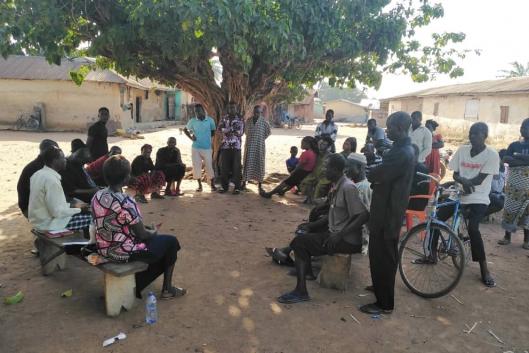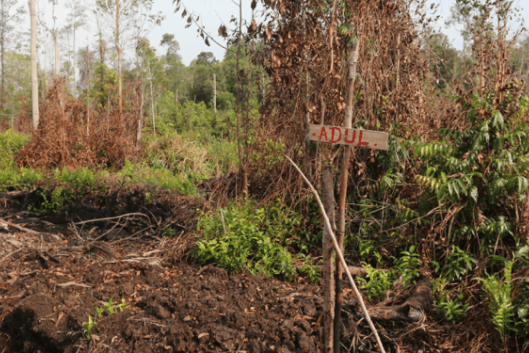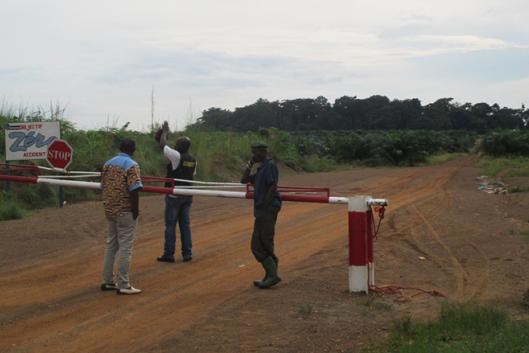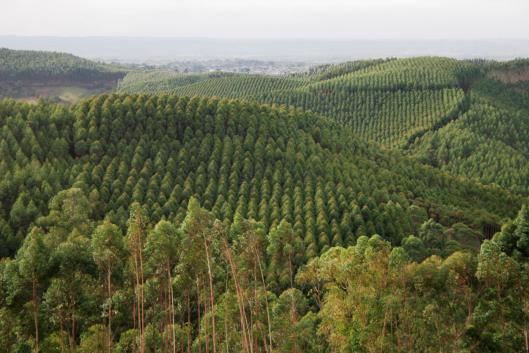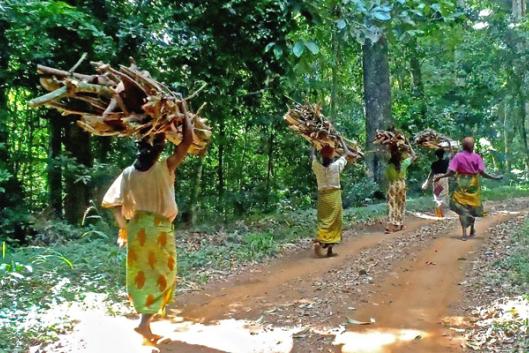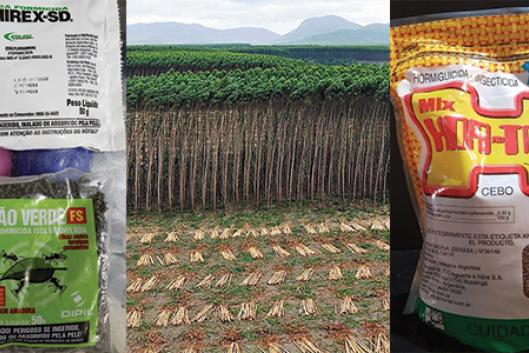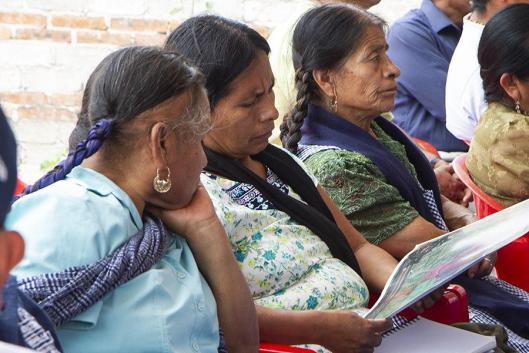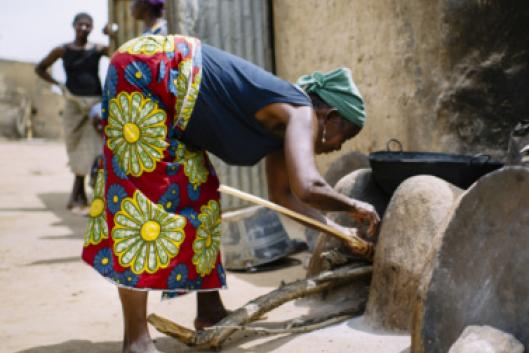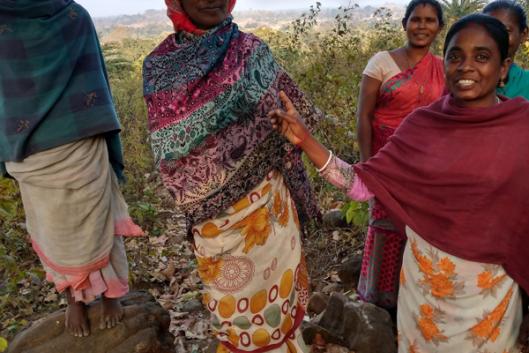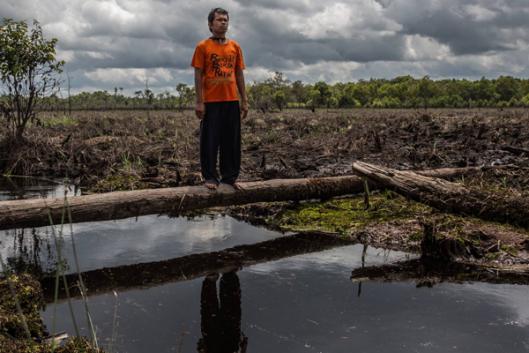This editorial aims to raise a high alert with regard to the corporate agendas that dominate international forest-related processes, which appear to be entering new phases. The decisions taken have very real impacts on forest communities.
Bulletin 248 - Jan/Feb 2020
Communities Resisting Deforestation and Greenwashing Tactics
This Bulletin articles are written by the following organizations and individuals: The Youth Volunteers for the Environment (YVE), Ghana; Muyissi Environnement, Gabon; an activist from Colombia; SUHODE Foundation, Tanzania; The Action Network on Pesticides and Alternatives - IPEN focal point for Latin America and the Caribbean; an activist from Chiapas; and members of the WRM international secretariat.
WRM Bulletin
248
Jan/Feb 2020
OUR VIEWPOINT
COMMUNITIES RESISTING DEFORESTATION AND GREENWASHING TACTICS
-
5 March 2020The Norwegian company APSD is establishing industrial eucalyptus plantations in Ghana for biomass fuel, which is considered a "carbon neutral" fuel. The Youth Volunteers for the Environment in Ghana spoke with communities affected by these plantations.
-
5 March 2020Oil multinational Shell claims that it is possible that consumers drive “carbon neutral”, simply by paying extra for offsetting their emissions - planting trees or investing in existing forest areas elsewhere. But what is happening in those areas elsewhere? (Available in Indonesian).
-
5 March 2020What are the experiences of communities living inside or adjacent to the plantation areas of companies with “zero deforestation” pledges? How can these companies continue expanding without deforesting in densely forested countries?
-
5 March 2020After more than 50 years of struggle by peasant communities who have faced all kinds of environmental and social destruction, the highest court of Cauca Valley has ruled against the industrial plantation company, Smurfit Kappa Cartón Colombia.
-
5 March 2020Plantation companies often argue that local populations are destroying the forests, particularly where people depend on firewood and/or charcoal for their energy needs. Thus, they argue, industrial plantations can “sustainably” provide this wood. But this is simply not true.
-
5 March 2020One of the latent dangers that comes with the establishment of monoculture plantations—which is generally invisible—is the high use of agrochemicals. Agrochemicals support profits for plantation companies and their financiers, while poisoning life.
-
5 March 2020Women’s struggle for full and dignified recognition of their lives and territories starts with not allowing the extractive model to progress. However, it must be resolved by the need for women to be able to make decisions to strengthen collective political control.
RECOMMENDED
-
5 March 2020The September 2019 Forest Cover newsletter from the Global Forest Coalition focuses on the bioenergy developments and use in West Africa and how they are impacting women and forests. From bioenergy produced in large-scale, requiring huge areas of land to provide the raw materials, to the ubiquitous household and community-scale energy needs, where wood is collected mainly by women. Clean cookstove projects are increasingly being tied to commercial tree plantations that produce “clean charcoal”, and eucalyptus trees are being planted on a large-scale purely to burn in a power station. Women must spend long hours and undertake physical effort to gather fuelwood, which is made worse by deforestation, besides the health impacts due to exposure to smoke.
-
5 March 2020The People’s Climate Report, from the People’s Climate Network, is designed to offer a perspective on climate change from the bottom up. It aims to understand how communities across the world experience the changing climate. This report offers a glimpse of experiences and voices from communities dealing with a changing climate in West Bengal, Odisha, Jharkhand, and Chhattisgarh, parts of India where waters and forests are increasingly under threat from climate change, deforestation, and lop-sided development.
-
5 March 2020Social organizations from Uruguay, Finland and other countries, together with well-known professionals, presented the results of scientific research carried out over the past 15 years on the impacts of monoculture tree plantations on grasslands, refuting the "green washing" of UPM company, which presents itself as a leading global corporation in the fight against climate change, the defense of biodiversity and the sustainable water management.
-
5 March 2020On January 2020, the Dutch National Contact Point for the Organization of Economic Co-operation and Development (OECD) declared a complaint from three Friends of the Earth groups (Milieudefensie -Netherlands, SDI -Liberia and WALHI -Indonesia) against the ING bank, admissible.

